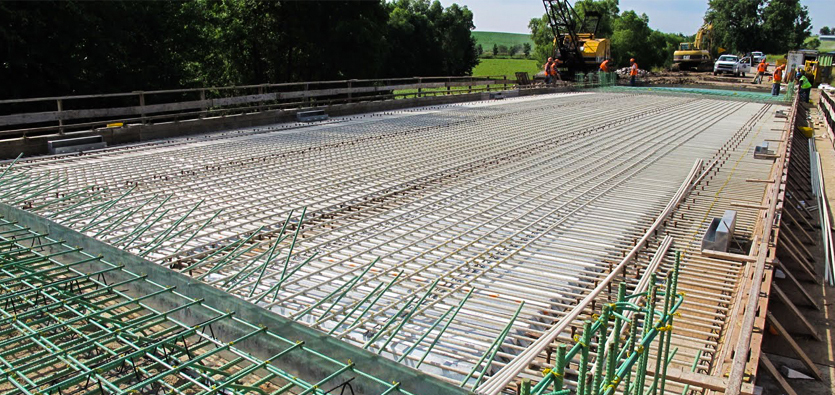Exploring the Uses and Advantages of Recycled Composites in Modern Industries
In today's quickly progressing commercial landscape, the utilization of recycled compounds has actually garnered boosting focus for its potential to redefine typical manufacturing practices. The amalgamation of recycled materials with sophisticated composite innovations provides a promising opportunity for boosting sustainability, resilience, and cost-efficiency throughout numerous fields. As markets seek ingenious solutions to resolve ecological issues and boost operational efficiencies, the incorporation of recycled composites becomes a compelling alternative. This shift towards lasting techniques not just aligns with international preservation efforts but also supplies a myriad of advantages that hold the key to forming the future of modern-day production methods.
Environmental Advantages of Recycled Composites
The application of recycled compounds in modern industries offers substantial environmental advantages, contributing to the decrease of waste and the preservation of all-natural resources. By including recycled composites into producing procedures, markets can decrease their reliance on virgin products, thereby lowering the amount of waste generated and the power needed for extraction and production. This change towards utilizing recycled compounds helps in drawing away materials from landfills, easing the concern on waste management systems, and decreasing greenhouse gas discharges linked with conventional manufacturing practices.
In addition, using recycled compounds advertises the conservation of natural resources such as timber, minerals, and water, which are often depleted through the extraction and handling of raw materials (composites). By extending the life-span of products via recycling, sectors can assist protect ecological communities and biodiversity by reducing the demand for brand-new sources. Overall, the adoption of recycled composites in contemporary markets plays an essential duty in advertising sustainability and alleviating the environmental effect of production processes
Improved Resilience in Item Production
With a concentrate on longevity and robustness, integrating recycled composites right into product manufacturing processes enhances toughness and sustainability. By using recycled compounds, manufacturers can create items that are not only strong however also immune to tear and wear, making them optimal for long-term usage in numerous industries. The combination of different materials in recycled composites can commonly lead to boosted toughness and resilience compared to standard products, giving an affordable solution for generating durable goods.
One of the crucial advantages of utilizing recycled compounds in product production is the capability to tailor the material residential or commercial properties to satisfy certain toughness needs. By adjusting the composition and production strategies, makers can tailor the recycled composites to stand up to severe ecological conditions, hefty loads, or constant use without jeopardizing on performance. This flexibility in design and production permits the production of very long lasting items that maintain their stability over time, minimizing the demand for regular replacements and ultimately contributing to an extra sustainable manufacturing process.
Cost-Effectiveness and Economic Advantages
Integrating recycled composites right into item manufacturing not just enhances sturdiness and sustainability however also provides official source considerable cost-effectiveness and economic advantages. Utilizing recycled composites can result in minimized product costs as recycled materials are usually less costly than virgin materials. Furthermore, reusing composite materials can lower garbage disposal costs and decrease the requirement for garbage dump room, adding to total cost savings for markets.

Advancement and Layout Adaptability With Recycled Composites
Making use of recycled compounds in contemporary markets supplies unmatched possibilities for development and design flexibility. By including recycled products into composite manufacturing processes, business can push the borders of traditional design restrictions and discover brand-new opportunities. The adaptability of recycled composites permits the creation of intricate shapes and frameworks that may not be achievable with conventional materials.
Among the vital advantages of recycled compounds is their ability to be formed into numerous kinds, giving developers the flexibility to experiment with unique sizes and shapes. composites. This flexibility opens a globe of innovative possibilities, making it possible for the growth of lightweight yet sturdy items that satisfy the specific requirements of different sectors
In addition, making use of recycled compounds promotes sustainable practices and sustains the round economy by lowering waste and lessening the ecological impact of making procedures. This concentrate on environmentally friendly layout services aligns with the expanding fad towards sustainability in modern-day industries, making recycled compounds a valuable resource for innovative and forward-thinking companies.
Applications Across Various Industries
Recycled compounds find impactful and varied applications throughout a large array of industries due to their one-of-a-kind properties and sustainability advantages. The aerospace industry advantages from recycled compounds in the manufacturing of aircraft components, where the materials' strength-to-weight proportion is crucial for making certain safety and security and performance. The adaptability and sustainability of recycled compounds make them useful across numerous industries, driving technology and ecological stewardship.
Final Thought
Finally, the utilization of recycled compounds in contemporary markets supplies significant ecological benefits, boosted longevity in product manufacturing, cost-effectiveness, and financial benefits. The use of recycled compounds allows for innovation and layout flexibility throughout various industries. Overall, the adoption of recycled composites web link offers a sustainable and useful service for fulfilling the needs of the market while additionally decreasing ecological influence.

One of the vital advantages of making use of recycled composites in product production is the capability to customize the product residential or commercial properties to fulfill certain sturdiness demands. Making use of recycled compounds can lead to decreased material costs as recycled products are usually less pricey than virgin products. The aerospace sector benefits from recycled composites in the manufacturing of aircraft components, where the products' strength-to-weight Visit Website ratio is essential for making certain safety and performance.